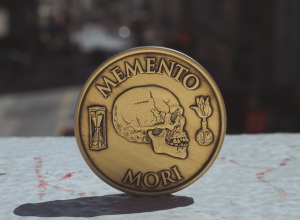Not so long ago, a singer/song-writer by the name of Ralph McTell played in the Hertford Theatre, just round the road from our church here. McTell is most famous for his song ‘Streets of London’ written in 1969. In it, he reflects on the challenges faced by the mass of humanity that can be witnessed on the streets of the city on any given day. Whilst he goes on to use his song to say ‘look mate, you don’t have it too bad in comparison to these guys’, I think a day on the streets of London, or any community, might offer the Christian a different perspective altogether.
Now and again, I have the opportunity to go into London for the day on my own, something I especially like to do if I have a Sunday off (which doesn’t happen that often). I enjoy being able to worship in different places, different traditions and suck in some good ‘ministry.’ But, equally, I love to sift through and reflect on that ministry in the light of what can be seen passing by the window of the coffee shop, or walking down Oxford Street. This is something I also find helpful here in Hertford.
I try to spend some time in town listening to and observing the ‘regular folks’ in our town. It is there that is found the context into which the gospel needs to speak. And let me tell you – the gulf between ordinary people, their hopes, their views, their understanding and their desires, and the hope of the gospel, is large. This maybe doesn’t surpise you, really, but I do find that the church is often surprised by the fact that people no longer flock to church to take part in our show.
The challenge is that the heart of the gospel gets to the core of our human problem. Our human problem is that we are our own gods, essentially. My ideas, my comfort, my wants, my desires, my views, my opinions, my pleasures, my preferences…I speak as a human, you understand. At the heart of the gospel is the annoucement that God has declared Jesus King and through his death and resurrection then invites us to engage in the blessing of his Kingdom through recognising our need for both forgiveness and righteousness. Me? Well…my fundamental problem as part of the human race in the 21st century is that I’m quick to reject any sense of authority above my own desire, so who has the right to declare me sinful and unrighteous?
It is an offensive and uneasy message. And because of that, because we struggle and want to be nice to people (because we’re pretty decent people, right?), we fall into a sense of being ashamed of the message, covering it up somehow. We listen to the gospel of this present age that says everything is fine, people are essentially good, and that it’s ‘each to their own.’
I have a pretty diverse group of friends outside the church. They are my friends whom I love dearly and spend a good chunk of time with. Thing is, because I love them, it can be very easy to choose to simply not go near the gospel when you know that it will be totally offensive to them. And so, sometimes we (I) err on the side of love…again, a popular thing to do. ‘Love wins’, says the religious left. And yes, love wins. But love without justice, love without righteousness, love without faith, love without hope, love without forgivenness, love without challenge, is less than love. It is merely affection. The love that God identifies within the New Testament is a little more robust. God is love AND holy.
And so the connection point between this robust love of God and the strength of the gospel, and the people on ‘the streets of Hertford’ is often me or you as a follower of Jesus. I ask myself what is the most loving thing…to leave everyone affirmed and unchallenged, and so to face God in their own strength? Or to proclaim that Jesus is Lord and King, and that our response to that is repentance and faith, because its that faith and trust in God’s decree that leads to real life?
It’s a logical no-brainer in the face of the message of the Gospel. But even as I write, I can think of even some Christian friends who would be offended by this. The big challenge is that I am not free to re-write the terms of the gospel, to negate the strong message that any honest reading of the New Testament can’t deny. Sadly, the church has often mistaken the challenge of the gospel with the assumption that they are called to be offensive, rude, judgemental and unkind. I think it is better, however, to read the gospel in the ‘market square’ and allow ourselves to be filled with the same compassion as Jesus, to see the ‘sheep without a shepherd’, and to offer a way out in robust love that whoever believes might be saved.
